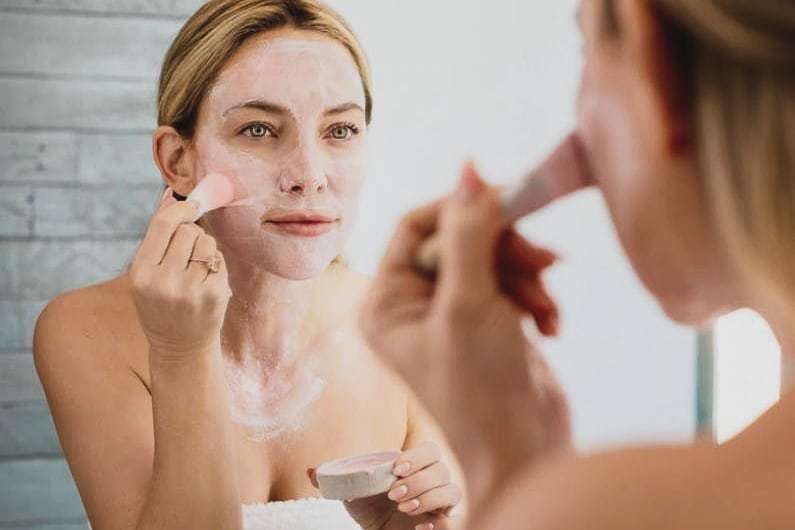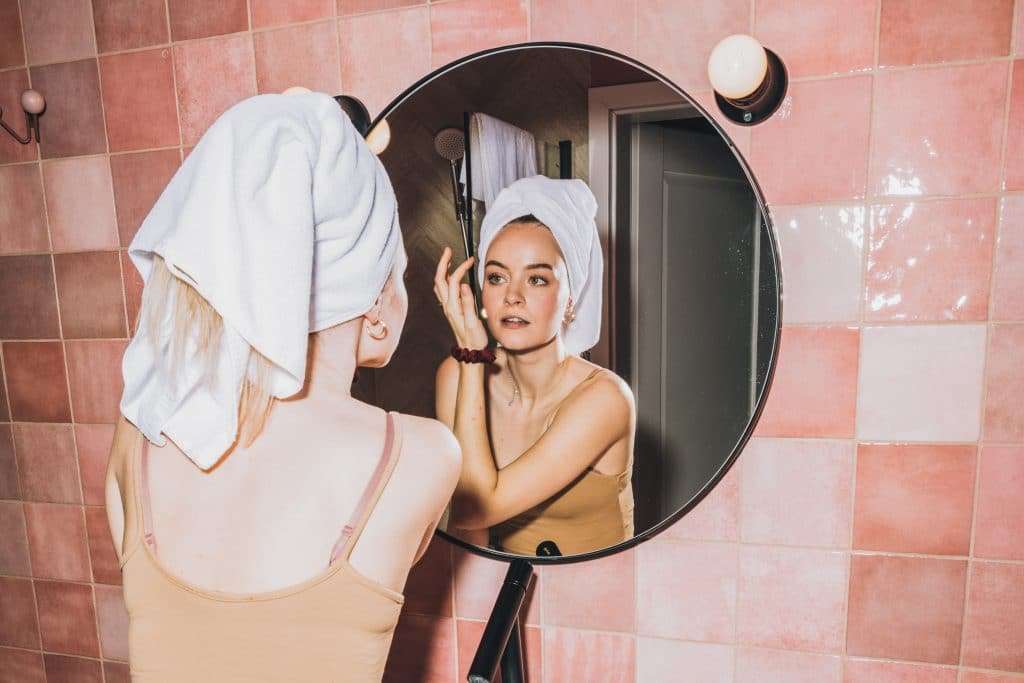Credo Beauty has become synonymous with clean beauty and natural skincare since its launch in 2015. And even if you’ve never shopped there, Credo’s clean beauty standards are undoubtedly changing the way you shop for skincare.
From the beginning, Credo Beauty has set a high standard for clean beauty products, requiring that all products it carries meet its Clean Standard. Its founders, beauty industry veterans, Annie Jackson, and the company’s late visionary, Shashi Batra, always aimed for a platform that focused on products that must be formulated without a list of more than 2,700 potentially harmful ingredients, including parabens, phthalates, and formaldehyde, among others.
In addition to ingredient safety, Credo Beauty also prioritizes ethical sourcing and sustainability, requiring that products are made with ethically sourced ingredients and that packaging is environmentally friendly.

Credo Beauty operates 11 stores across the United States and also has a strong online presence offering a wide range of clean beauty products, including skincare, makeup, haircare, and fragrances. In addition, it also launched its own line of products, Credo Beauty Clean Makeup, which also adheres to its Clean Standard. The platform has had a significant impact on the beauty industry, inspiring other retailers and brands to prioritize ingredient safety, ethical sourcing, and sustainability. The Credo Clean Standard has set a new standard for the industry, providing consumers with a clear and trustworthy framework for evaluating beauty products.
What is clean beauty?
Clean beauty is a term that has gained popularity in recent years, but it can be difficult to define and is not regulated by any governing body. Essentially, clean beauty refers to products that are made with safe and non-toxic ingredients. However, given there is no industry standard for what constitutes a “clean” product, many brands blur the lines.
Some companies use the term to describe products that are free of certain ingredients, such as parabens, sulfates, or phthalates but can still contain synthetic ingredients or “nature-identical” ingredients. Others use the term more broadly to refer to products that are free of any potentially harmful ingredients, including synthetic fragrances, preservatives, or dyes.
Credo Beauty’s clean beauty standards
Credo takes a comprehensive approach to clean beauty. According to its website, “Our Clean Standard goes beyond the common clean beauty claims of ‘natural,’ ‘non-toxic,’ and ‘organic’ to ensure that our products are safe, ethically sourced, and environmentally responsible.” Credo’s Clean Standard has four pillars: safety, sourcing, sustainability, and transparency.
Safety
Credo’s first priority is the safety of its customers. It carefully vets each product to ensure that it meets its safety standards. Credo’s banned list of 2,700 ingredients includes known carcinogens, endocrine disruptors, and other potentially harmful substances. The list is regularly updated to reflect new research and emerging concerns.

In addition to the banned ingredient list, Credo also requires that all products meet the standards set by the European Union for cosmetics safety. The E.U. has stricter regulations than the U.S. when it comes to cosmetics safety, and Credo believes that these standards should be the minimum requirement for any beauty product.
Sourcing
Credo is committed to sourcing ingredients ethically and responsibly. It requires all products to meet its standards for ingredient sourcing, which includes ensuring that ingredients are not tested on animals, sourced from sustainable and renewable sources, and fairly traded and produced without exploitation.
Credo also works with suppliers to ensure that they are meeting these standards. It has established a Supplier Code of Conduct that outlines its expectations for ethical and sustainable practices.
Sustainability
Credo recognizes that the beauty industry has a significant impact on the environment. It is committed to minimizing that impact by promoting sustainable practices throughout its business. This includes a requirement that all products be packaged in materials that are recyclable or biodegradable. It also means a commitment to clean energy; Credo’s stores and offices are powered by 100 percent renewable energy. It also has waste diversion efforts implemented in all stores.
Transparency
Credo believes in transparency and wants its customers to have access to as much information as possible about the products they are purchasing. It requires that all products have a complete list of ingredients and that any claims made about the product are supported by scientific evidence. Credo also requires that all products disclose their country of origin and any certifications they have received (such as organic or cruelty-free).

Impact on the beauty industry
Credo Beauty’s clean beauty standards have had a significant impact on the beauty industry. By setting a high bar for ingredient safety and ethical sourcing, it has forced other retailers and brands to take clean beauty more seriously. According to a report by Grand View Research, the global clean beauty market was valued at $11.1 billion in 2020 and is expected to grow at a CAGR of 9.3 until at least 2028. This growth is largely driven by increasing consumer demand for safer and more sustainable beauty products. Credo Beauty has been at the forefront of this trend. Since its launch, the company has grown rapidly, bringing clean beauty brands along for the ride.
Credo’s impact on the industry can also be seen in the increasing number of brands that are now touting their own clean beauty standards. For example, Sephora recently launched its own “Clean at Sephora” program, which highlights products that are free from a list of over 50 potentially harmful ingredients. Ulta Beauty has also launched a “Conscious Beauty” program in partnership with Credo, which emphasizes products that are cruelty-free, vegan, or made with sustainably sourced ingredients.
“[Ulta] really have been very thoughtful about how to approach clean beauty,” Jackson told Glossy in 2020. She says if there was an awareness about certain chemicals when some of the legacy brands had been developed, many of the brands wouldn’t have created products the way that they did. “It’s just that there’s a better awareness now, and I think if they could go back in time they probably would approach how they created their brands very differently,” she said. “But now we know, and I think the way Ulta is approaching this, we obviously think, is an incredible opportunity for Credo and the brands at Credo.”
In 2022, Credo acquired competitor Follain absorbing its online retail business and storefront in Beacon Hill, Boston. It will also fold the Follain-branded skincare line into the Credo’s brand portfolio, which includes Exa and mineral sunscreen collection, EleVen by Venus Williams.

“The acquisition of Follain, a like-minded company with a shared mission, is an important step forward for Credo and the clean category,” Credo CEO Stuart Millar said in a statement last October. “Solidifying Credo’s clean beauty leadership position allows us to scale our impact in a meaningful way, and we are excited to continue to advocate for change in a highly under-regulated industry,” he adds.
Even with these efforts, there is still a long way to go. The beauty industry is largely unregulated in the U.S., and there is no standardized definition for what constitutes a “clean” or “safe” product. This can make it difficult for consumers to navigate the market and make informed choices.
Credo Beauty’s Clean Standard is one attempt to address this problem. By setting clear standards for ingredient safety, ethical sourcing, and sustainability, is providing consumers with a clear and trustworthy framework for evaluating beauty products. As Mia Davis, Credo’s Director of Environmental and Social Responsibility, explains, “We’re trying to provide a roadmap for what clean beauty should look like, and we’re encouraging other brands to join us in this mission.”
Related on Ethos:


